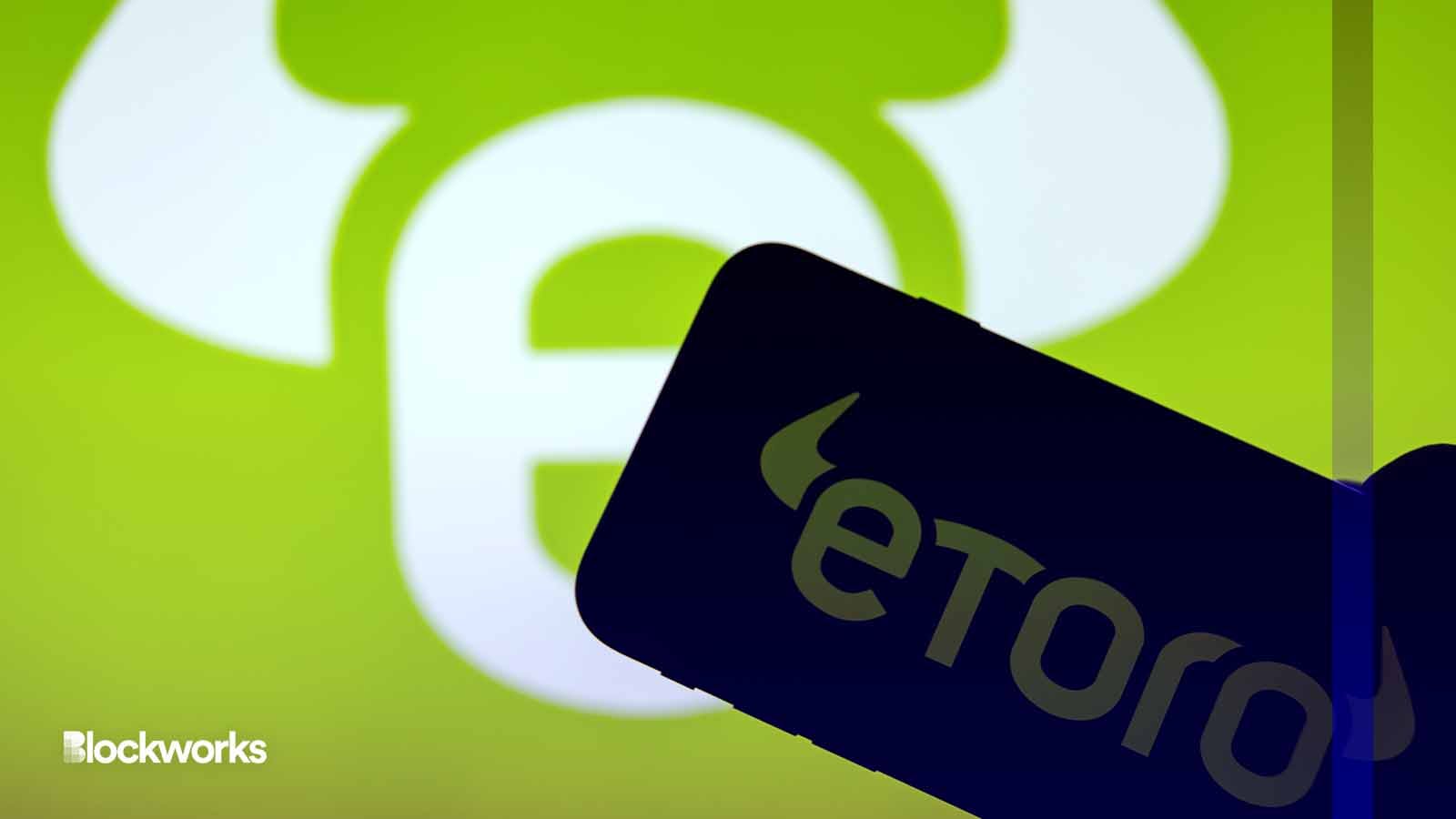Australian regulator sues eToro over crypto-related CFDs
Most consumers who traded eToro’s contract for difference product ended up losing money, an Australian regulator alleged

David Esser/Shutterstock modified by Blockworks
Australia’s financial markets regulator has initiated legal action against eToro, accusing the investment platform of allegedly violating the design and distribution requirements related to its contract for difference (CFD) offering.
The Australian Securities & Investment Commission’s (ASIC) lawsuit focuses on the suitability of eToro’s target market for the CFD product.
Additionally, it examines the assessment method the company used to identify whether a retail customer fell within the intended market during the period from Oct. 5, 2021 to July 29, 2023, according to the lawsuit filed on Wednesday.
A CFD allows an investor to profit from the price change of an asset without owning it. Essentially, it’s a bet on whether the price will rise or fall. EToro then exchanges the difference between the starting and ending price, multiplied by the units, at the contract’s close.
ASIC told Blockworks the regulator is concerned with the type of CFDs being offered by eToro.
“CFDs are complex, high-risk financial products that are not suitable for most retail investors,” an ASIC spokesperson said.
“Where the underlying asset is volatile or high-risk (such as crypto-assets, foreign currencies and commodities), that factor must be taken into account by issuers when they are determining whether or not they have complied with the various obligations under the [design and distribution] regime.”
According to the design and distribution obligations, eToro was mandated to define a “target market determination” before proceeding with any retail distribution activities related to the CFD product.
However, ASIC claimed that eToro failed to adequately define a suitable target market for the CFDs, taking into account the probable goals, financial circumstances and requirements of its retail clients.
EToro’s screening test allegedly excluded only a small percentage of retail clients; 8% from Oct. 5, 2021 to Jan. 25, 2022, and 6% thereafter. Consequently, ASIC claims that many clients could trade the CFD product even when it was unsuitable for them.
“The majority of consumers who acquired the CFD Product lost money when trading CFDs,” ASIC said.
An eToro spokesperson told Blockworks the company’s Australian subsidiary will respond to ASIC after considering the allegations filed.
“There is no impact or disruption of service for clients of eToro AUS and no material impact on eToro’s global business,” the spokesperson said.
“These proceedings relate to the time period 5 October 2021 to 29 July 2023,” the spokesperson said, adding “eToro AUS is now operating with a revised target market determination in place for CFDs.”
Get the news in your inbox. Explore Blockworks newsletters:
- The Breakdown: Decoding crypto and the markets. Daily.
- 0xResearch: Alpha in your inbox. Think like an analyst.






